New Scientist covers the latest developments in science and technology that will impact your world. New Scientist employs and commissions the best writers in their fields from all over the world. Our editorial team provide cutting-edge news, award-winning features and reports, written in concise and clear language that puts discoveries and advances in the context of everyday life today and in the future.
Elsewhere on New Scientist
Something to feast on • Our special issue on how to eat better cuts through the latest nutritional fads
New Scientist International Edition
A giant dinosaur in New York City
Earth’s heat gain is slowing • The recent surge in warming led to fears that climate change may be accelerating beyond projections, but a fall in how much heat Earth is gaining makes this less likely, says Michael Le Page
Ever increasing heat energy
Mindfulness meditation may increase empathy
Weird microbes are rewriting the origin of multicellular life
Electric skin patch could keep wounds free of infection
Molecule needed for life spotted outside solar system for first time
The Stone Age artisans of Paris • Ancient stone goods found in France and Belgium may have been traded along vast networks
Carbon emissions growing faster now than pre-pandemic
Artificial intelligence falls for scams • AI is susceptible to being scammed – and some models are more gullible than others
Battery made from water and clay could be used on Mars
Stories about magical fruit help children eat healthily
DNA helps match ‘Well Man’ skeleton to 800-year-old saga
Bacteria force enemies to switch sides • Armies of microbes armed with poison darts fight in your gut – and some have a secret weapon
Nuclear waste tanker tests out aluminium sail
Wildfires in parts of US growing twice as fast as they used to
Supernova sweep may have cleaned up our solar system
Ancient tracks hint that dinosaurs used wings to leap further
Morphing red blood cells help bats to survive hibernation
Meta AI tackles impossible maths • Mathematical problems that have stumped humans for over a century can now be worked out
Rare Bronze Age wooden tool found in English trench
Mystery of the missing La Niña • Climate-cooling pattern still hasn’t appeared in the Pacific Ocean
Hornets hold their alcohol like no other animal on Earth
Amateur sleuth finds largest-known prime number
Woman’s brain shrinks while taking birth control pills
If only they could talk • Communicating with animals may be closer than we think. But are we really ready for what they are going to say, asks Chris Sherwood
This changes everything • Falling for my robotaxi I have a confession to make. After taking a handful of autonomous taxi rides, I have gone from a hater to a friend of robot cars in just a few weeks, says Annalee Newitz
Shackleton saga • National Geographic 5 November
Your letters
Cashing in on killer whales • A tense and thriller-like documentary digs deep into the murkiest waters surrounding the cruel trade in orcas, finds Katie Smith-Wong
The real asteroid plan • Forget giant space rocks, smaller ones that could wipe out a city are what we really need to fear, discovers Chris Stokel-Walker
New Scientist recommends
The TV column • Voyage to hell Fresh discoveries about the 1845 Franklin expedition to find the Arctic’s Northwest Passage make it worth revisiting an excellent horror drama. It is beautifully crafted and a worthy tribute to the lost sailors, says Bethan Ackerley
THE SMART GUIDE TO NUTRITION
Total immersion • An extraordinary experiment aims to combine virtual reality and...
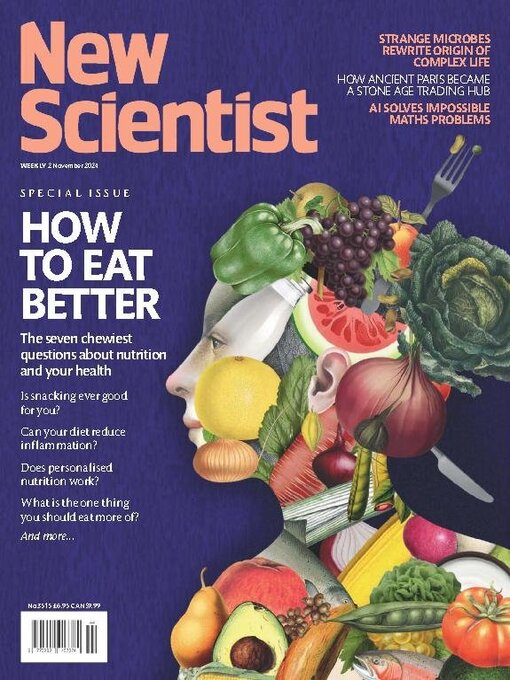
 Mar 29 2025
Mar 29 2025
 Mar 22 2025
Mar 22 2025
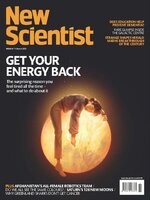 Mar 15 2025
Mar 15 2025
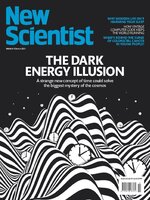 Mar 08 2025
Mar 08 2025
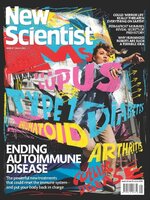 Mar 01 2025
Mar 01 2025
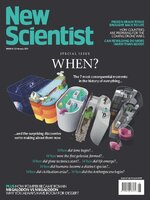 Feb 22 2025
Feb 22 2025
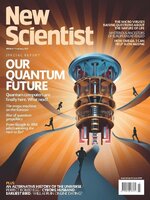 Feb 15 2025
Feb 15 2025
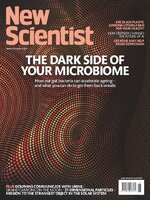 Feb 08 2025
Feb 08 2025
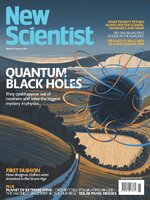 Feb 01 2025
Feb 01 2025
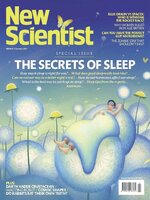 Jan 25 2025
Jan 25 2025
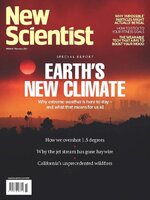 Jan 18 2025
Jan 18 2025
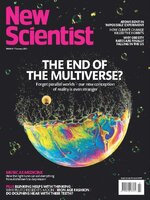 Jan 11 2025
Jan 11 2025
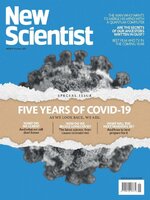 Jan 04 2025
Jan 04 2025
 Dec 28 2024
Dec 28 2024
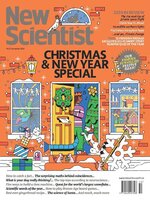 Dec 14 2024
Dec 14 2024
 Dec 07 2024
Dec 07 2024
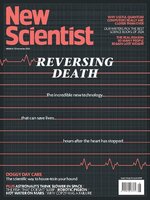 Nov 30 2024
Nov 30 2024
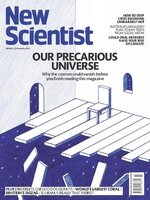 Nov 23 2024
Nov 23 2024
 Nov 16 2024
Nov 16 2024
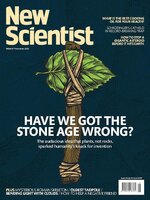 Nov 09 2024
Nov 09 2024
 Nov 02 2024
Nov 02 2024
 Oct 26 2024
Oct 26 2024
 Oct 19 2024
Oct 19 2024
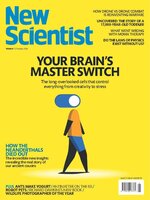 Oct 12 2024
Oct 12 2024